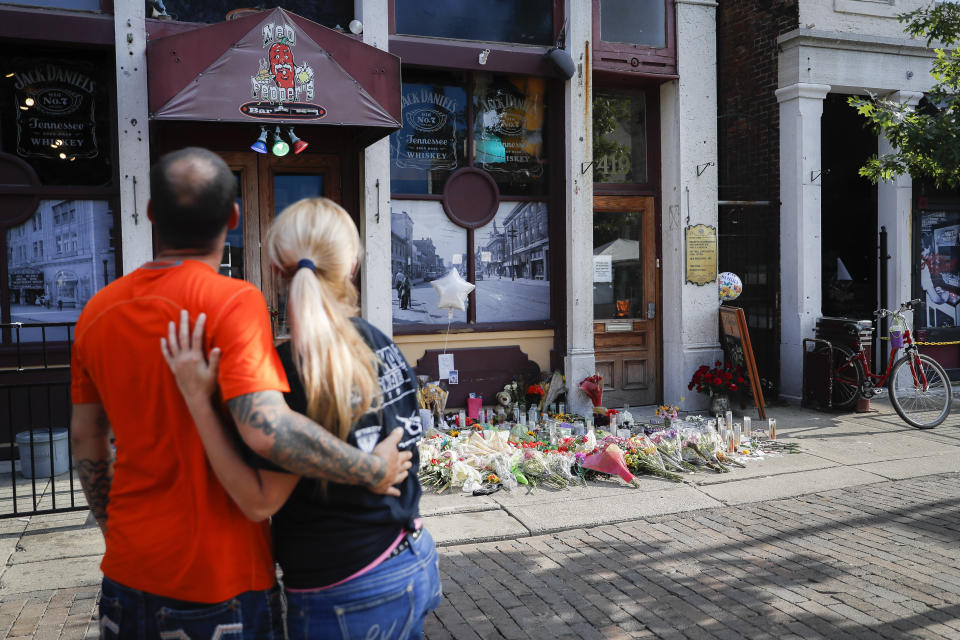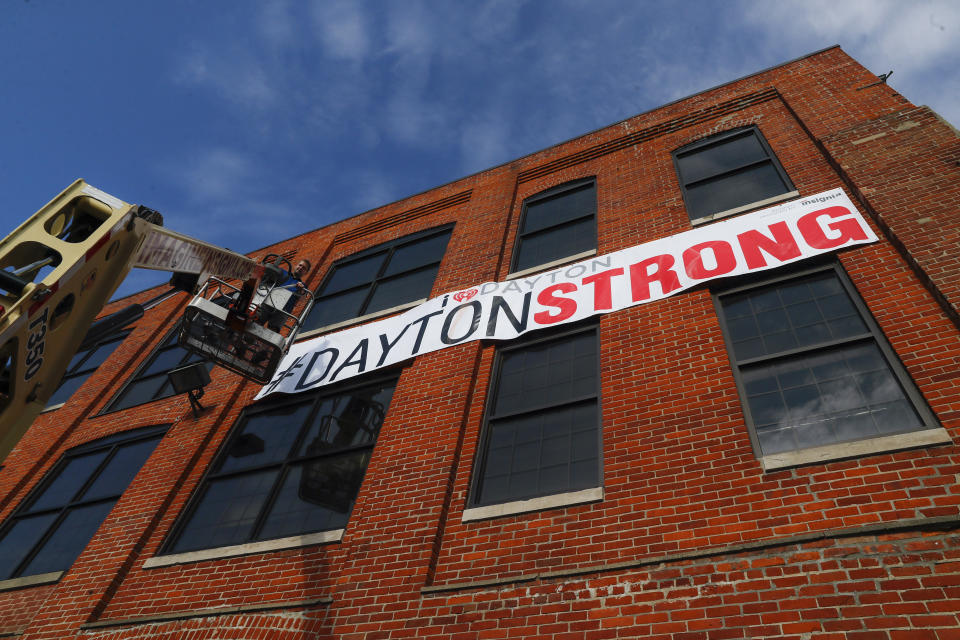After Recent Mass Shootings, Red Flag Laws Touted As Means To Prevent Gun Violence
The mass shootings in Dayton, Ohio, and El Paso, Texas, this past weekend have once again revived calls for red flag laws to keep firearms out of the hands of those who could pose a threat to themselves or others.
At least 31 people were killed during the weekend’s shootings, and both President Donald Trump and Ohio Gov. Mike DeWine (R) have called for new legislation, even in GOP-held bastions, to prevent further gun violence.
Here’s what you should know about red flag laws:
What do red flag laws do?
Red flag laws, also called extreme risk laws, allow the courts to temporarily block a person from obtaining new firearms or to confiscate those they already legally own for a set amount of time. Under the laws, family members and members of law enforcement can ask the court system to intervene when a person is deemed to be a risk to themselves or others.
The definition of “risk” varies among jurisdictions but often focuses on patterns of violent behavior, substance abuse or the recent acquisition of new guns, according to the Brady Campaign, a gun control advocacy group.
The protection orders are only temporary, and those subject to red flag laws are allowed to present evidence on their behalf. But the orders can also be extended with further court intervention.
Everytown, a gun safety group, notes that federal law only prohibits people from purchasing weapons under limited circumstances, including if they are convicted of certain crimes or have been formally declared mentally ill.
“A person who displays warning signs that they’re considering suicide or other acts of violence, but who does not fall into any of the above categories or is otherwise not prohibited under current law, would still be able to legally buy and possess guns,” Everytown notes. “Extreme Risk laws help to fill this gap, protecting public safety and allowing people in crisis the chance to seek the help they need.”

Where have the laws been enacted?
17 states and the District of Columbia have passed some version of an extreme risk law, and they’ve become dramatically more common since the 2018 school shooting in Parkland, Florida.
The laws vary by jurisdiction. California’s is one of the most far-reaching, The New York Times notes, allowing family members to petition the courts directly to block relatives from obtaining or holding on to firearms. The red flag law in New York allows teachers to file court petitions, while those in Vermont can only be requested by the state attorney general or the Department of State’s Attorneys and Sheriffs.
Do they work?
Some studies have already shown that red flag laws can contribute to a decline in violence, although law enforcement officials have said it can be difficult to determine how effective they are.
A 2018 report from the journal Psychiatric Services found that gun suicides declined significantly in two states that passed red flag laws, Connecticut and Indiana.
Are they popular?
Yes. According to a recent study from Everytown, around 89% of people favor red flag laws, including 86% of Republicans polled by the group. Another poll in 2018 conducted by The Washington Post found 85% support, with 72% of respondents saying they were “strongly” in favor.

Do the laws have any chance with Republicans?
Red flag laws are seen as a popular compromise between Democrats who favor dramatic efforts to pass gun control legislation and Republicans who tout their ties to the NRA and cite the Second Amendment.
Sen. Lindsay Graham (R-S.C.) is one of the most powerful members of Congress who is supportive of the proposal.
Trump himself announced his support for red flag laws earlier this week, although he failed to link widespread access to firearms to mass shootings, blaming the massacres on mental illness, white nationalism, the internet and video games.
“Mental illness and hatred pull the trigger,” the president said Monday. “Not the gun.”
How does the gun lobby feel about them?
Like many major efforts to overhaul access to firearms, gun advocates have come out in fierce opposition to red flag laws.
The Firearms Policy Coalition, a gun rights group, labeled such laws “unconstitutional, unsound, and dangerous” after Trump called for their passage.
“They should and must be opposed — not rewarded with millions of taxpayer dollars,” the group said in a statement this week. “We can’t let this … tell the key DC leaders that they MUST OPPOSE any attempt to push these unconstitutional laws.”
Related Coverage
Dayton Mayor Will Tell Trump 'How Unhelpful He's Been' On Guns During His Visit
Activists Call On 2020 Candidates To Attend Gun Safety Forum In Wake Of Mass Shootings
The NRA Has Long Urged Americans To Arm Themselves Against An Immigrant Invasion
Love HuffPost? Become a founding member of HuffPost Plus today.
This article originally appeared on HuffPost.

